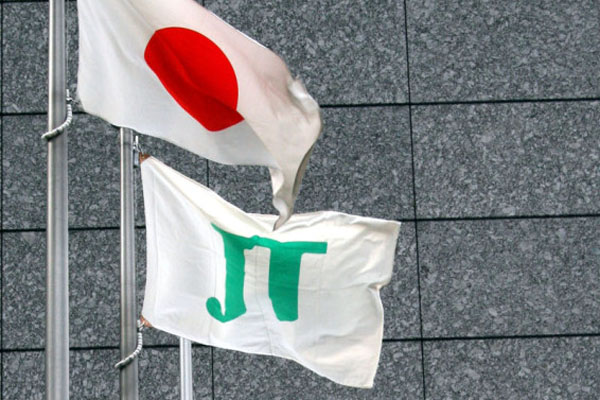Japan Tobacco Inc. reported today that its domestic cigarette sales volume during the year to the end of December, at 82.0 billion, was down by 11.7 percent on that of the year to the end of December 2017, 92.9 billion.
This compared with a JT-reported industry-wide decline of 12.4 percent from 151.4 billion to 132.7 billion that was said to have been caused mainly by the expansion of the reduced-risk product (RRP) category and an underlying ‘natural decline trend’.
As a result, JT’s cigarette market share increased by 0.5 of a percentage point to 61.8 percent.
JT reported that its RRP sales volume had reached 2.8 billion cigarette-equivalent units in 2018, and it estimated that overall RRP sales in Japan represented about 21 percent of total tobacco-industry volume.
JT’s domestic tobacco business core revenue was said to have fallen by 1.4 percent due to an unfavorable cigarette volume contribution of ¥64.9 billion, partially offset by a positive cigarette price/mix variance of ¥5.3 billion and a ¥51.3 billion increase in RRP and other factors, resulting in RRP revenue reaching ¥64.6 billion.
Domestic tobacco business adjusted operating profit declined 10.0 percent due to a negative cigarette volume contribution of ¥54.4 billion and an increase in sales-promotion expenses, partially offset by an increase in RRP-related profit, and a favorable cigarette price/mix variance of ¥5.3 billion.
Meanwhile, Japan Tobacco International’s total tobacco shipment volume during the year to the end of December, at 427.6 billion, was up by 7.3 percent on that of the year to the end of December 2017, 398.5 billion.
JTI’s global flagship brand shipment volume was increased by 2.3 percent from 260.4 billion to 266.4 billion.
JT reported that JTI’s 7.3 percent shipment growth was driven by acquisitions in Bangladesh, Ethiopia, Greece, Indonesia, the Philippines and Russia. Excluding acquisitions, total shipment volume declined by 1.1 percent. Volume increases and market share gains in the Czech Republic, Germany, Hungary, Iran, Italy, Luxembourg, the Netherlands, Poland, Spain, Sweden, Switzerland, the USA and several emerging markets did not offset the impact of industry volume contraction, notably in France, Russia and Taiwan.
JTI’s core revenue during the year to the end of December, at ¥1,250.7 billion, was increased by 6.3 percent on that of the year to the end of December 2017, ¥1,177.0 billion. Adjusted operating profit was up by 9.5 percent to ¥384.5 billion.
JT’s consolidated revenue for the year to the end of December, at ¥2,2216.0 billion, was up by 3.6 percent on that of the year to the end of December 2017, ¥2,139.7 billion.
Operating profit was up by 0.7 percent to ¥565.0 billion, while adjusted operating profit was up by 1.73 percent to ¥595.5 billion.
Masamichi Terabatake, president and CEO of the JT group said that in 2018 the Group had increased adjusted operating profit at constant FX by 8.9 percent in a challenging business environment. “We were also able to strengthen our business foundation for sustainable profit growth from 2019 onwards,” he was quoted as saying.
“In the international tobacco business, market share gains and strong pricing in key markets yielded outstanding performance which was supported by the positive impact of acquisitions.
“In the Japanese domestic tobacco business, we completed the nationwide expansion of Ploom TECH and solidified our leading position in cigarettes by increasing our market share.
“Our 2019 Business Plan reaffirms our strategic direction. Our goal is to deliver mid- to high-single-digit annual average profit growth in the mid- to long-term. To achieve this, we will deliver sustainable earnings growth in the total tobacco business, by offering a wide portfolio of conventional products and RRPs to meet diverse consumer needs.”

